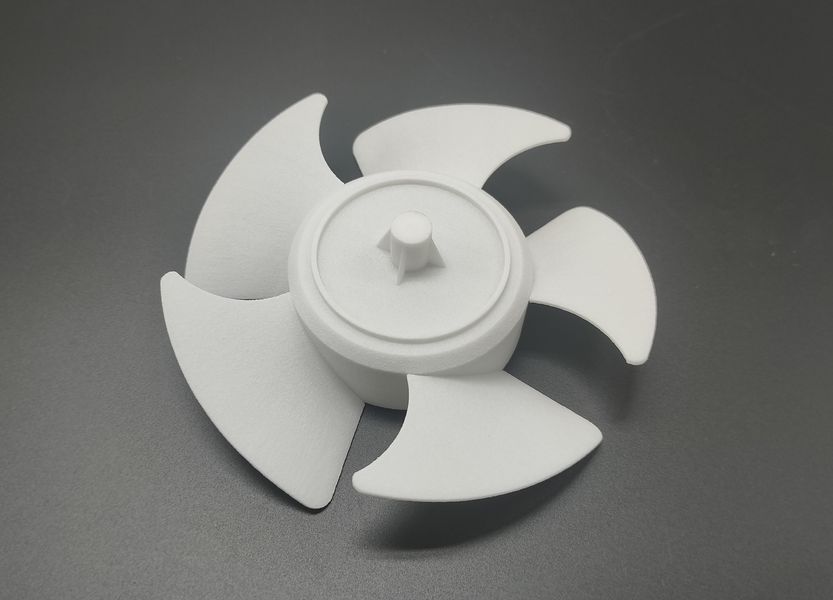
Farsoon announced the first results of a collobartion with chemical company Evonik.
You don’t get 3D printing unless there’s a 3D printer, a 3D model, and a material. In this case we have Asia’s largest manufacturer of SLS 3D printers, Farsoon, cooperating with Evonik, a €14B German chemical firm that has been producing 3D print materials for several parties.
One of those parties is Farsoon.
But there are already several SLS materials available for Farsoon’s equipment, so what is this all about?
Today the 3D printing industry is all about applications. While there are countless product applications in manufacturing, it turns out that a large proportion cannot be attempted with additive approaches because there are no suitable materials. In other words, the materials catalog doesn’t happen to have a material that exhibits the desired thermal, mechanical, electrical or other characteristics required for the application.
In those situations, there is no AM solution. The market is effectively closed for 3D printer manufacturers.
However, Evonik said:
“The specialty chemicals company Evonik and China’s largest SLS 3D printer manufacturer Farsoon are strengthening their collaboration in powder-based 3D printing. Both companies aim to open up market access to new large-scale industrial applications in the higher temperature range.”
Check the phrase: “open up market access”. This is exactly what I mentioned above: there are no suitable materials in the space they are targeting.
By combining the knowledge of 3D printing from Farsoon, and the chemical and material production knowledge from Evonik, the two should be able to develop new material formulations that can hopefully address the unmet needs of these industrial applications.
The pair announced the results of their first collaboration. Evonik’s Director Research, Development & Innovation Additive Manufacturing, Wolfgang Diekmann, said:
“Close collaboration between material and machine manufacturers is essential to open up new 3D applications. The results of our test series are clear: INFINAM PA 6005 P with its higher melting point of 215 °C can not only be excellently processed on Farsoon’s ST252P and HT403P machines, but also recycled. We used our synergies to develop a market-ready system solution.”
This was an important test, as Farsoon’s equipment can operate with internal build chamber temperatures up to 280C, which is notably hotter than many other SLS systems. This high temperature capability opens up the possibility of attempting unusual 3D print profiles for new materials.
The company also said:
“The development of new formulations is underway.”
I see this style of partnership as the way forward for many 3D printer manufacturers. It’s often said the manufacturing market is enormous, and the 3D printing industry can simply take up large portions of it.
That’s possible only if there are suitable materials for the manufacturers to use in their future 3D printers. Partnerships like this are the way to develop them.
